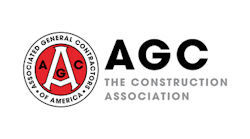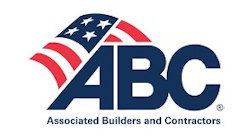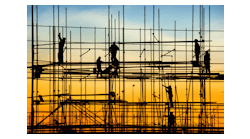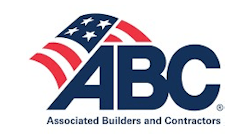Being in media is to always be learning. Some of my best takeaways as I go about editing an issue of Business Energy come from the Reader Profiles. Including these can be like running recipes in a local newspaper. You, our readers, all have fresh ways of doing things; we make these visible to your peers so you get to pass them on.
I’m impressed with the approach that Carla Walker-Miller takes with her consulting company, Walker-Miller Energy Services, to raise the energy efficiency in some of Detroit’s older buildings. When she got started 15 years ago, upgrades were very hard to get pushed forward. They didn’t make sense on the mortgaged properties in a struggling economy. But her background, along with her education and career path as an African-American woman in the sciences, give her a pragmatism infused with helping people, the structures they depend on, and communities.
Walker-Miller’s business is thriving. She also teaches senior citizens how to save on their energy and water bills. These don’t appear to be compartmentalized as charitable work and earning work. Helpfulness that builds on basics informs her entire ethic.
Her company has a sequenced method that starts with looking at occupant behaviors, and teaching no-cost changes. Next comes seeking low-cost solutions like sealing, and lighting upgrades. Systems that are capital investments will be recommended last. The goal is to help improve operations in buildings for the lowest cost possible.
Our writer, Carol Brzozowski, also shares this about Walker-Miller, after mentioning her classroom teaching: “She’s inspired by the US Department of Energy’s energy literacy program….” I had not heard of this before, and since I am inspired by Walker-Miller, I thought I ought to check out this platform.
My first looks at this interdisciplinary approach to teaching and learning about energy tell me I am on to something good: “The Energy Literacy document is the culmination of public listening sessions and thousands of experts from diverse fields of study contributing to a dialogue about what an energy literate person should know and understand. This included over 20 recognized educational partners and 13 federal agencies that comprise the US Global Change Research Program Partner agencies…. The guide does not seek to identify all areas of energy understanding, but rather to focus on those that are essential for all citizens K-Gray. It presents energy concepts that, if understood and applied, will help individuals and communities make informed energy decisions.”
I don’t know if it is because I have a father who, when I was growing up and I would ask for help with my homework, would always make me read back a few pages to make sure I had gotten the background on the problem at hand, but I like to get at the roots of things. This energy literacy program starts simply as a ground up approach, resting on seven published principles:
- Energy is a physical quantity that follows precise natural laws.
- Physical processes on earth are the result of energy flow through the earth system
- Biological processes depend on energy flow through the earth system.
- Various sources of energy can be used to power human activities, and often this energy must be transferred from source to destination.
- Energy decisions are influenced by economic, political, environmental, and social factors.
- The amount of energy used by human society depends on many factors.
- The quality of life of individuals and societies is affected by energy choices.
From these fundamentals, an energy literate person, the guide says:
- Can trace energy flows and think in terms of energy systems
- Knows how much energy they use, for what purpose, and where the energy comes from
- Can assess the credibility of information about energy
- Can communicate about energy and energy use in meaningful ways
- Is able to make informed energy use decisions based on an understanding of impacts and consequences
A third of this issue is our Smart Buildings Supplement. As you discover its contents you’ll see that the sensors, data, dashboards, and controls coming into play in intelligent buildings are lining up with some of these points about energy literacy, and that is encouraging.
The more well-read we can be on what is going on in both the natural and built environments, the better the foundation for all business energy decisions.










